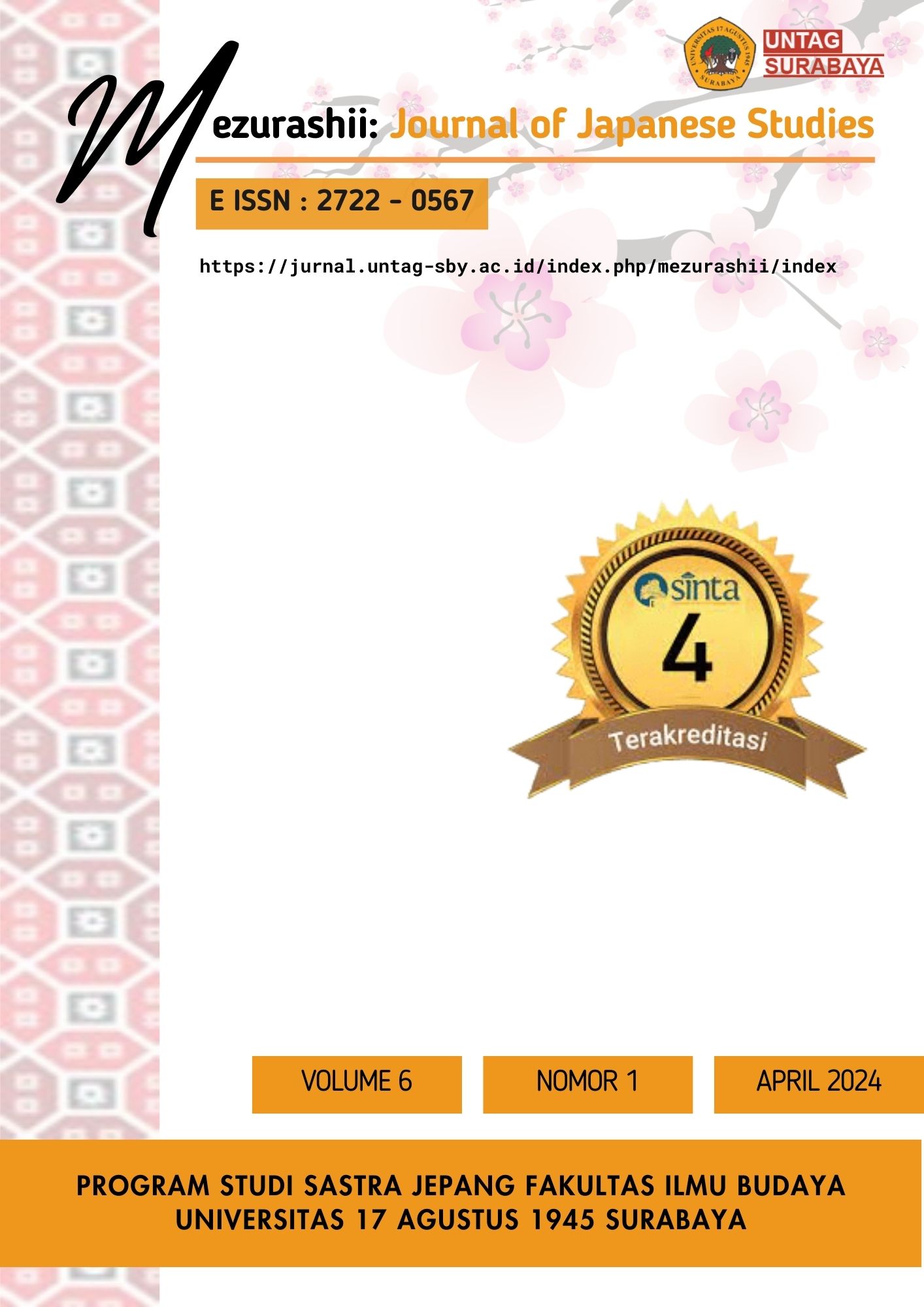Japanese Culture Studies in the Frame of Freedom to Learn through Gakujutsusōgōka
DOI:
https://doi.org/10.30996/mezurashii.v6i1.11034Abstract
Abstract
This paper examines problem solving in the field of improving the quality of Japanese cultural studies research in the Freedom to Learn frame. By comprehensive study, that specific to say academics of Japanese cultural studies after and the Independent Campus-Freedom to Learn policy which was implemented at the Department of Japanese Literature in University of 17 August 1945 Surabaya, I will reveal the transformation and dynamics of academia as an effort to respond the challenges and opportunities in the development knowledge of science through improving the quality of research. In this context, the social order has changed due to the implementation of health-oriented policies. Then Universities are also required to prepare concepts of appropriate knowledge and technology that are beneficial to industry and government. The method will be used literature review with comparative approach. The analysis will focus on the dynamics of Japanese cultural studies academics in the Department of Japanese Literature by improving the quality of their research in universities and their efforts to fulfill the demands of the Independent Campus-Freedom to Learn policy. The result is contribution of knowledge related methodological adjustments to improve the quality of research in the field of Japanese cultural studies through gakujutsusōgōka or collaborations with cross-disciplinary. In addition, this paper provides a contribution on how academics of Japanese cultural studies in universities have strategies in recording as well as providing references related to finding solutions and innovations in their efforts to make peace with the situation during the crisis and post-crisis.
Downloads
Downloads
Published
How to Cite
Issue
Section
License
Authors publishing in the Journal will be asked to sign a Copyright Assignment Form. In signing the form, it is assumed that authors have obtained permission to use any copyrighted or previously published material. All authors must read and agree to the conditions outlined in the form, and must sign the form or agree that the corresponding author can sign on their behalf. Articles cannot be published until a signed form has been received.It is a condition of publication that authors assign copyright or license the publication rights in their articles, including abstracts, to email jurnalmezurashii@untag-sby.ac.id. . This enables us to ensure full copyright protection and to disseminate the article, and of course the Journal to the widest possible readership in print and electronic formats as appropriate.








